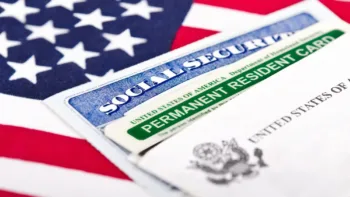
Social Security is a lifeline for millions of Americans; the department provides essential benefits across various demographics. But recent legislative actions and headlines have sparked fears that it’s on the brink of collapse.
Will retirement checks start to disappear? Are politicians misleading the public? Find out what’s happening below and discover some of the biggest misconceptions about funding from both political perspectives and truth about Social Security’s future.
What Social Security Actually Covers (It’s More Than Just Retirement!)
When people think of Social Security, they usually picture retirees collecting monthly checks. But did you know that Social Security funds four major programs?
1. Retirement Benefits: Provides monthly payments to individuals who have reached eligible retirement age, offering financial support based on their earnings history.
2. Disability Benefits: Known as Social Security Disability Insurance (SSDI), this program offers assistance to individuals unable to work due to significant disabilities.
3. Survivors Benefits: Offers financial support to family members of deceased workers, including widows, widowers, and dependent children.
4. Supplemental Security Income (SSI): Provides aid to individuals with limited income and resources, including the elderly, blind, and disabled, to meet basic needs for food, clothing, and shelter.
Millions of Americans rely on these programs daily. But are they really in danger of running out of money?
The Biggest Myth About Social Security Funding
A prevalent misconception is that Social Security operates like a traditional savings account, where individuals’ contributions are directly saved for their future use. This is false.
In reality, Social Security functions on a pay-as-you-go basis: current workers’ payroll taxes fund the benefits of current retirees and beneficiaries. Any surplus revenue is held in trust funds, invested in special U.S. Treasury securities to accrue interest.
This structure ensures that funds are available to pay benefits, but it also means that the system relies on a balance between incoming contributions and outgoing payments. And the problem is there are more retirees than ever before, and fewer workers paying into the system.
Can Social Security Actually Run Out of Money?
It’s true that Social Security’s trust fund is running low, but that doesn’t mean the program will necessarily disappear. Here’s what’s happening:
· According to the 2024 Trustees Report, the Social Security trust fund is projected to run out by 2035 if no changes are made. At that point, payroll taxes would still cover 83% of benefits—so retirees wouldn’t lose everything, but they would face cuts.
· Some experts argue that changes like adjusting payroll taxes or tweaking retirement ages could keep the program funded indefinitely.
· Despite doomsday claims from both sides, Social Security isn’t vanishing overnight. But reforms are needed soon to keep full benefits flowing.
Both sides of the political aisle like to use Social Security as a weapon in debates, but neither party is telling the full story.
· Republicans often push for privatization, arguing that giving workers control over their contributions will prevent future funding shortages. Critics say this could leave retirees vulnerable to stock market crashes and undermine the program’s foundational principles.
· Democrats tend to fight against benefit cuts, but some proposals involve raising taxes on higher earners to keep the program solvent—something opponents claim will hurt working-class Americans and potentially impact economic growth.
The reality? Both perspectives aim to address the program’s sustainability but differ in approach. A mix of reforms is likely needed, but fear-mongering from both sides only makes the situation more confusing for everyday Americans.
Tips for Staying Informed
Instead of panicking, take action! Here’s how you can stay ahead:
· Keep an eye on legislative changes – Congress is debating solutions right now, and staying informed helps you advocate for the best outcome.
· Start saving independently – While Social Security will likely always exist in some form, having your own savings or retirement plan is key.
· Plan for different scenarios – If benefit cuts happen, will you be prepared? Adjust your savings plan accordingly.
Social Security isn’t disappearing, but change is coming. The sooner we push for realistic solutions, the better off all Americans will be. Don’t fall for political fear tactics—stay informed, stay prepared, and secure your future today!



